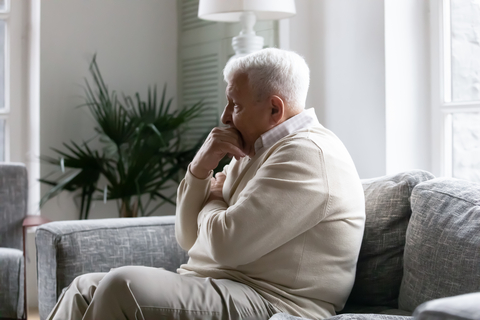After her dementia diagnosis, her friends seemed to disappear. Now she’s lonely and doesn’t know where to turn. Advice columnist Eric Thomas weighs in.
Originally published April 21, 2025; updated May 20, 2025, with a response from a reader.
Dear Eric:
I was an attorney when I started having memory problems at age 65. I retired and subsequently learned that I had a devastating rare dementia with a very short lifespan. Instead of providing me support, my friends disappeared from my life, at the time I needed them most. Friends may rally around you when you have cancer, driving you to chemo treatments, dropping off food and other things to support you; when you have dementia, everyone just disappears.

I’ve always been a sociable person and I’m missing that so much, but I have no idea how or where to start. Any ideas?
– Left By Friends
Dear Friends:
People sometimes don’t know what to do or say when confronted with illness, but that’s no excuse for your friends’ behavior and I’m sorry. The Alzheimer’s Association (alz.org) has a wealth of resources for people with dementia, including support groups, both online and in-person. Being able to talk with others about what you’re experiencing and feeling will help with isolation.
This also might be a time for you to explore new volunteer opportunities or social groups that have nothing to do with dementia, depending on your care plan and abilities. You are a person who is worthy of connection, with a wealth of experiences and knowledge from which others can benefit. Your company would be welcomed at a senior center, a local outing group or an organization that aligns with your interests and values. If you have anxiety about navigating these spaces with dementia, or need accommodation in order to feel safe, please don’t hesitate to reach out in advance and talk to a group leader about how you can participate most comfortably.
Dear Eric:
You gave good, practical advice to “Left By Friends,” a recently retired attorney whose friends “disappeared” after a rare dementia diagnosis.
Here’s an additional perspective:
No one chooses to get dementia. Without well-established prevention or cure, we would all agree that dementia is not the fault of the person who has it. Joining support groups or taking steps to engage socially are good ideas for the person living with dementia, but the solutions are not theirs to bear alone. Consider this: dementia visits one in 10 of us around retirement age, and one in three of us a couple decades thereafter. At this prevalence, each of us knows someone living with dementia, whether we realize it or not.
We all have the opportunity as family and friends to learn how to care for and be supportive of our loved ones with dementia. Perhaps those of us with healthy brains even have a social responsibility to do so. Friends worth keeping will not run away from but rather run toward those living with dementia. “Running toward” typically starts with taking a short training course. Virtual sessions are available from certified nurses with the Dementia Institute; many communities across the country have in-person training too.
– Running Toward
Dear Running Toward:
This perspective is so valuable. We talk a lot about the importance of preventative care; this strikes me as a kind of proactive care. I love the idea that we can meaningfully prepare ourselves to support loved ones, acquaintances, even strangers before a diagnosis.
R. Eric Thomas (he/him) is a national bestselling author, playwright, and screenwriter. His accomplishments include “Eric Reads the News,” a daily humor column covering pop culture and politics, serving as the interim Prudie for the advice column “Dear Prudence,” and author of “Congratulations, The Best Is Over!” Send questions to R. Eric Thomas at eric@askingeric.com or P.O. Box 22474, Philadelphia, PA 19110. Follow him on Instagram and sign up for his weekly newsletter at rericthomas.com.
For more like this advice on loneliness after a dementia diagnosis, check out the Boomer Advice for Life department and more wisdom in Seniors Guide like a friend refusing medical care, a wife resenting her husband’s leisure, and lonely elderly mother sending guilt vibes.
